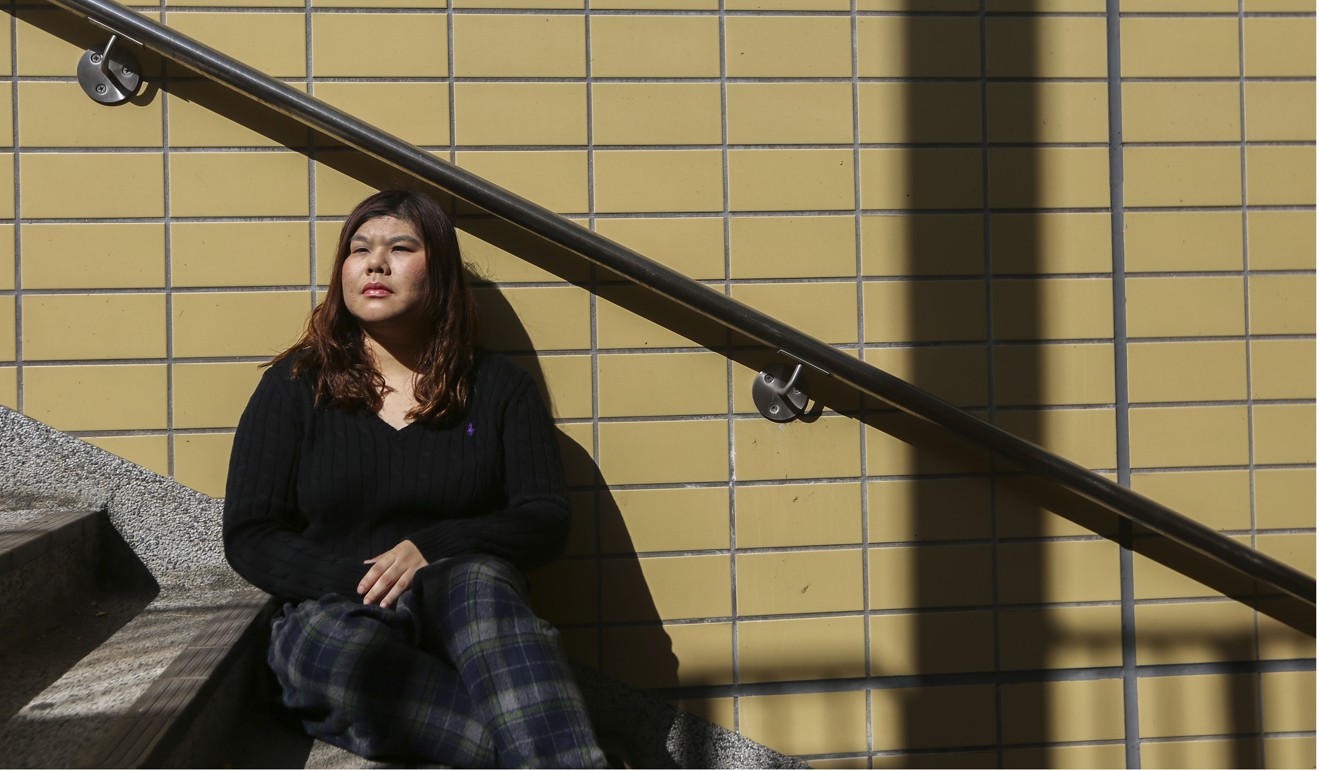
‘Scarred’ former patient on mission to cut public stigma of mental illness in Hong Kong
Sushi Siu, who recently wrote a book on her experiences dealing with psychosis, wants people to know exactly what she and many others are going through in their lives
An unpleasant job interview years ago has left a scar on Sushi Siu Sze-man’s life. On the job application form, the former psychosis patient was asked to declare her mental state.
“One question on the application form was whether I was mentally ill before,” recalls Siu, 33. “I didn’t know whether I could just ignore the question. I thought I had to declare everything during a job interview.”
In the end the company did not hire Siu, and she was told it was because they found a better candidate. But she was sceptical about the explanation, describing the painful experience as “a scar” on her life.
“They didn’t ask whether I had cancer, high blood pressure or diabetes, only mental illness. Why?” she says.
Siu, who recently published a book documenting her journey with the illness, was diagnosed with psychosis at the age of 19. The disorder forced her to drop out of the first year of her associate degree programme in social work.
‘Alarming’ number of recovering psychosis patients’ in Hong Kong struggle to get past fear of being judged over condition
Soon after the diagnosis, Siu learned that her childhood best friend had committed suicide.
“I was facing a double whammy of being mentally ill and losing my best friend,” she says.
Siu says that before the diagnosis she was body shamed and bullied during the last three senior years in secondary school. She suspected that sparked her mental illness, as she usually responded to the bullies with silence and buried the sadness inside
“They kept at least one metre away when talking to me and basically treated me like I had some kind of disease,” Siu recalls. “Their actions had stripped me of my pride.”
Siu says she sought help from psychiatrists two years after she graduated from secondary school following a few major emotional breakdowns.

“Our society rarely discussed mental health back then,” she says. “Schools didn’t teach that. So, I was not aware of my mental problem. I only felt very unhappy all the time.”
At one point, the side effects of her medication resulted in her changing jobs six times within a year. After that, she took a six-month break.
“I felt very sleepy at work,” Siu says, referring to the side effects. “My brain couldn’t function in the morning. Also, it was obvious that my working ability was not as good as in the past. It took me longer to process what people had said to me.”
Hongkongers discriminate against people with psychosis despite better understanding: study
The unpleasant interview was the first job application after she returned to the workforce from her break. But she did not give up. After a few trials, she landed a job where her supervisor encouraged her to take part in a writing competition. During the competition, she spent a month writing her 70,000-word book for submission.
Now working as a programme worker in a local rehabilitation centre, Siu is thankful that she came across a few supportive bosses over the past three years, who “can look at a mental health problem in a neutral way” and treated her simply as an ordinary worker.
Siu, who is now in recovery, says she named her book as “crazy” or “insane” in Chinese since these are the labels that society usually puts on mentally ill patients. Through her book, she wants to reduce the public stigma of mental illness, saying the media sometimes paints a false image of patients too.
“I want people to know exactly what I and many other mentally ill patients are going through in our lives,” she says. “Not every one of us would randomly attack people like what’s reported in the news.”

